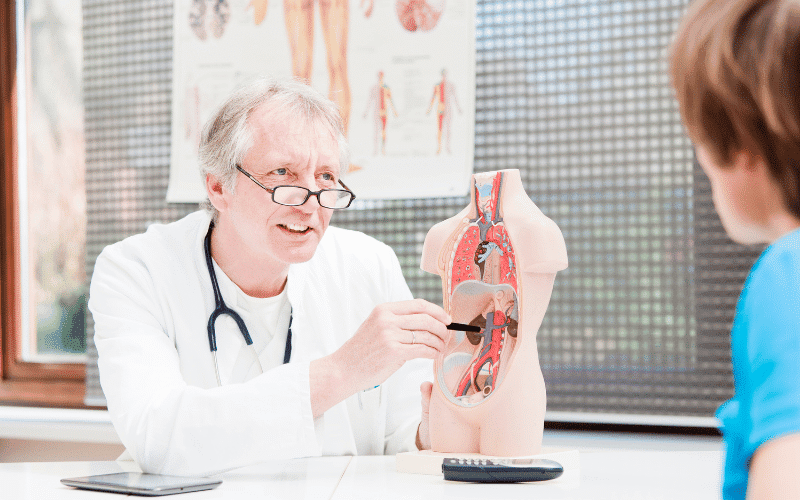Frequently Asked Questions About Kidney Pain Causes

1. How can I tell if my pain is due to a kidney issue?
Kidney pain is typically felt in the back or side, below the ribcage, and may radiate towards the abdomen. However, it can sometimes be challenging to differentiate between kidney pain and pain from other sources, such as muscle strains or gastrointestinal issues. If you’re experiencing persistent pain, it’s essential to consult with a healthcare provider for an accurate diagnosis.
2. Can dehydration cause kidney pain?
Dehydration can contribute to kidney pain by increasing the risk of developing kidney stones or urinary tract infections. Drinking plenty of water helps flush out waste products from the kidneys and maintain proper kidney function.
3. Can kidney pain be a sign of a more severe condition?
In some cases, kidney pain may be an indication of a more severe condition, such as a kidney infection, kidney stones, or kidney failure. It’s essential to consult with a healthcare provider if you’re experiencing persistent or severe kidney pain to determine the underlying cause and receive appropriate treatment.
4. How can I prevent kidney pain?
Preventing kidney pain involves addressing the underlying causes and maintaining proper kidney function. Some general tips for kidney health include staying hydrated, eating a balanced diet, exercising regularly, and avoiding excessive use of painkillers or other medications that can harm the kidneys.
5. When should I seek medical help for kidney pain?
You should seek medical help for kidney pain if the pain is severe, persistent, or accompanied by other concerning symptoms, such as fever, nausea, vomiting, or changes in urine output. Early diagnosis and treatment are essential to prevent further kidney damage and maintain overall kidney health.
6. Can kidney pain be treated at home?
Some mild kidney pain may be managed at home with over-the-counter pain relievers, rest, and increased fluid intake. However, it’s crucial to consult with a healthcare provider if the pain is severe, persistent, or accompanied by other concerning symptoms to determine the underlying cause and receive appropriate treatment.
Conclusion: About Kidney Pain Causes
Being aware of the top 10 kidney pain causes is crucial to identifying potential factors contributing to your discomfort and taking the necessary steps to address them. Timely intervention and appropriate treatment can significantly impact your overall kidney health and help prevent further complications.
By maintaining a kidney-friendly lifestyle, consulting with a healthcare provider when experiencing kidney pain, and addressing underlying conditions, you can work towards a pain-free future and protect your kidneys from further damage. Remember, always seek professional medical advice if you’re experiencing kidney pain or have concerns about your kidney health. Your well-being is paramount, and understanding the possible causes of kidney pain is the first step towards maintaining optimal health.